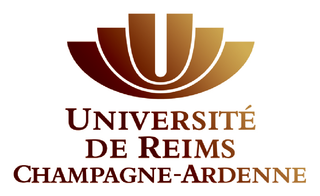Study of dopant diffusion and degradation in homojunction organic thin-film transistors (OTFTs): near-field characterization
| ABG-131679 | Sujet de Thèse | |
| 05/05/2025 | Contrat doctoral |

- Physique
- Matériaux
- Sciences de l’ingénieur
Description du sujet
This PhD thesis is part of the ANR-funded SMOOTH project, which aims to improve the efficiency and durability of organic thin-film transistors (OTFTs). One of the key limitations in OTFT performance is the instability at the metal/organic semiconductor interface. To overcome this, SMOOTH introduces a novel concept: replacing conventional electrode/semiconductor heterojunctions with homojunctions formed from doped and undoped regions of the same polymer semiconductor.
The consortium is multidisciplinary and brings together four partners from the fields of organic electronics, polymers, organic chemistry, and microelectronics:
- Université de Reims - L2n-URCA (coordinator)
- Université de Strasbourg – Institut Charles Sadron (ICS) (UPR 22)
- Université de Strasbourg – Institut de Chimie et Procédés pour l'Energie, l'Environnement et la Santé (ICPEES) (UMR 7515)
- Université Rennes 1 – Institut d'Electronique et des Technologies du numéRique (IETR)
The project focuses on the fabrication of inkjet-printed OTFTs using brush-oriented polymer semiconductors (PSCs). In these devices, doped PSC regions act as the source and drain electrodes, forming homojunctions. However, the long-term stability of doped PSCs remains a significant challenge, particularly under electrical stress.
The proposed thesis will investigate:
- The diffusion behavior of dopants within PSCs and across homojunction interfaces
- The degradation mechanisms associated with doping under electrical bias
- The impact of electric fields on dopant stability, aggregation, and de-doping phenomena
The PhD candidate will be fully engaged in the SMOOTH project and work in close collaboration with chemists, physical chemists, and physicists. The research will leverage advanced nano-characterization tools, including:
- Kelvin Probe Force Microscopy (KPFM) to map surface potential
- Nano-Raman spectroscopy to identify chemical changes in operating OTFTs
The student will fabricate devices using dopants synthesized by project collaborators, and systematically characterize the electrical and structural behavior of the resulting OTFTs. The goal is to validate the homojunction approach and deepen our understanding of doped polymer interfaces under operational conditions.
This thesis will make a significant contribution to the field of organic electronics by addressing fundamental questions about dopant behavior in polymer semiconductors, supporting the development of more stable, metal-free, and scalable OTFT technologies.
Prise de fonction :
Nature du financement
Précisions sur le financement
Présentation établissement et labo d'accueil
The host laboratory is Light, Nanomaterials, Nanotechnologies (L2n – CNRS UMR 7076).
L2n is a well-established research unit with strong expertise in near-field instrumentation and nanotechnology, applying its know-how across a wide range of fields. The team’s multidisciplinary nature is reflected in the presence of physicists, biochemists, biophysicists, electronics engineers, and biologists. This diversity enables applications ranging from optoelectronics and sensors to biomedical technologies. L2n focuses on the development of nano-optics, addressing numerous technological, scientific, and socio-economic challenges.
The project primarily involves the Organic Electronics Group at L2n, based at University of Reims Champagne Ardenne, which has recognized expertise in semiconductor physics and advanced electronics.
Site web :
Intitulé du doctorat
Pays d'obtention du doctorat
Etablissement délivrant le doctorat
Ecole doctorale
Profil du candidat
- Degree allowing enrolment for a PhD (such as Master 2 de Recherche or equivalent) in physics, materials science, Nanoscience or closely related science.
- A hands-on attitude and enthusiasm for experimental work, particularly in material fabrication and device testing.
- English spoken and written is mandatory.
Vous avez déjà un compte ?
Nouvel utilisateur ?
Vous souhaitez recevoir nos infolettres ?
Découvrez nos adhérents
 Nokia Bell Labs France
Nokia Bell Labs France  MabDesign
MabDesign  ONERA - The French Aerospace Lab
ONERA - The French Aerospace Lab  ADEME
ADEME  CASDEN
CASDEN  PhDOOC
PhDOOC  ASNR - Autorité de sûreté nucléaire et de radioprotection - Siège
ASNR - Autorité de sûreté nucléaire et de radioprotection - Siège  Ifremer
Ifremer  MabDesign
MabDesign  SUEZ
SUEZ  TotalEnergies
TotalEnergies  Généthon
Généthon  Aérocentre, Pôle d'excellence régional
Aérocentre, Pôle d'excellence régional  Laboratoire National de Métrologie et d'Essais - LNE
Laboratoire National de Métrologie et d'Essais - LNE  CESI
CESI  Groupe AFNOR - Association française de normalisation
Groupe AFNOR - Association française de normalisation  Tecknowmetrix
Tecknowmetrix  Institut Sup'biotech de Paris
Institut Sup'biotech de Paris  ANRT
ANRT







